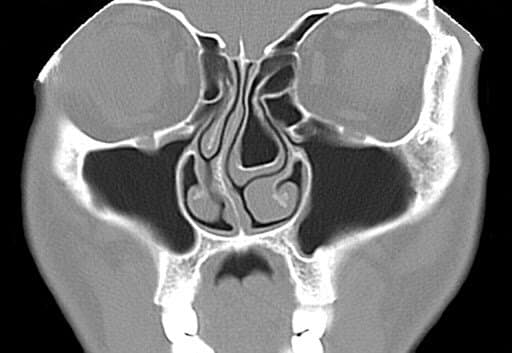Seasonal Sinus Pain Relief: Managing Weather Sensitivity Effectively
Understanding Seasonal Sinus Pain and Weather Sensitivity
Do you notice your nose feels stuffy, your head aches, or your face feels pressure as the seasons change? You’re not alone. Seasonal sinus pain is a common discomfort that often accompanies shifting weather. For people sensitive to weather changes, even subtle shifts in temperature, humidity, or barometric pressure can trigger significant sinus discomfort.
Your sinuses—air-filled spaces in your cheeks, forehead, and behind your nose—are particularly responsive to environmental fluctuations. When sinus tissues swell or become inflamed due to weather changes, it can disrupt your daily routine, productivity, and overall quality of life. Understanding seasonal sinus pain and weather sensitivity is the first step toward maintaining healthy sinuses year-round.
This guide explores why symptoms occur, outlines common triggers, and offers practical advice for relief. Read on for actionable strategies and helpful self-care tips to manage your sinus health effectively each season.
What Causes Seasonal Sinus Pain?
Weather Changes and Sinus Health
Weather shifts are among the most significant contributors to seasonal sinus pain and weather sensitivity. Changes in temperature, humidity, and approaching storms affect sinus passages dynamically. For instance, a rapid drop in barometric pressure—a frequent precursor to storms—can cause sinus cavities to swell and constrict. This leads to uncomfortable pressure and pain, similar to the ear or sinus discomfort experienced during airplane ascent or descent [1][2].
These changes may also narrow nasal airways, making natural sinus drainage difficult. When drainage is impaired, mucus can build up, creating an environment ripe for irritation or infection, which worsens sinus pain and headaches. Many patients describe this sensation as their sinuses “feeling blocked” or “stuffed,” similar to water trapped inside a confined space, causing blockage and discomfort.
Common Seasonal Triggers
Dry Air in Cooler Months: As fall and winter arrive, cooler air holds less moisture. Combined with indoor heating—which often reduces humidity—nasal membranes dry out and become inflamed. This dryness increases congestion, sensitivity to irritants, and the risk of sinus infections during colder months [2]. One patient shared, “In winter, my nose feels like a desert, cracking and sore, and my sinus headaches worsen.”
Seasonal Allergens: Spring and fall usher in high levels of pollen, mold spores, and other allergens. For allergy sufferers, these trigger an immune response that inflames sinus tissues, causing swelling and excess mucus production [4]. Also, closed homes during these seasons trap indoor allergens like dust and pet dander, worsening symptoms. Many allergists report that a majority of individuals with sinus issues notice worsened symptoms during peak pollen seasons.
Extreme Weather Events: Beyond temperature changes, events like storms, rapid wind shifts, or heatwaves cause sudden drops in air pressure and increases in air pollution. These irritate sinus tissues and can prolong recovery from sinus discomfort [3]. For example, exposure to pollutants after wildfires or chemical incidents inflames nasal passages and triggers sinus pain even in people without prior sinus issues.
Recognizing Symptoms of Seasonal Sinus Pain
When your sinuses react to weather or seasonal changes, you may experience:
- Nasal congestion or persistent stuffiness
- Pressure or aching pain around the cheeks and forehead
- Sinus headaches centered near the eyes and upper cheeks
- Postnasal drip with mucus draining down the throat
- Swelling around the nose or eyes, sometimes tender to touch
- Fatigue and a general feeling of sluggishness or heaviness
If these symptoms sound familiar, you may be experiencing seasonal sinus inflammation. For a full list of sinus symptoms and guidance on when to seek care, visit Symptoms of Sinus Problems.
How to Find Relief from Seasonal Sinus Pain
Home Remedies to Soothe Sinus Pain
Several effective home strategies can ease sinus pain and improve comfort:
- Steam Inhalation: Breathing in steam from a hot shower or bowl of hot water loosens thick mucus, moisturizes irritated nasal tissues, and opens sinus passages. Many find that just 10–15 minutes of steam twice daily significantly reduces congestion.
- Hydration: Drinking plenty of water thins mucus, helping to clear nasal passages and reduce blockages [2][4]. Aim for at least eight glasses daily, especially when symptoms appear.
- Saline Nasal Rinses: Using saline sprays or rinses gently flushes allergens and residues while soothing dry nasal membranes. Devices like neti pots or saline sprays provide safe, drug-free nasal hygiene.
- Warm Compresses: Applying a warm, damp towel to the face multiple times daily can promote sinus drainage, reduce facial pressure, and ease discomfort [4]. This is particularly helpful before bedtime to improve sleep quality.
Over-the-Counter (OTC) Treatments
If home remedies don’t provide enough relief, consider these OTC options:
- Saline Sprays vs. Steroid Nasal Sprays: Saline sprays hydrate and cleanse nasal passages, while steroid nasal sprays reduce inflammation and swelling in sinus membranes. Use steroid sprays as directed, typically for a limited time, to safely relieve sinus pain.
- Decongestants: These reduce nasal stuffiness by constricting swollen blood vessels. Use sparingly (no more than three days) to avoid rebound congestion, where symptoms worsen after stopping.
- Pain Relievers: Ibuprofen or acetaminophen can help ease sinus-related headaches and facial pain, making daily activities more manageable.
When to Use Medical Treatments or See a Specialist
If symptoms persist beyond 10 days, worsen, or if you experience recurrent sinus infections, professional evaluation is important. Specialists at Sleep and Sinus Centers of Georgia offer advanced options such as Balloon Sinuplasty, a minimally invasive procedure that gently widens sinus passages, restoring drainage and relieving pressure.
An ENT specialist explains, “Early intervention with specialized therapies may significantly improve quality of life and reduce the need for repeated antibiotic use.” If OTC treatments aren't effective, don’t hesitate to seek medical advice.
Weather Sensitivity and Your Sinuses: Tips to Stay Comfortable
Monitoring Weather and Air Quality
Staying ahead of sinus triggers means monitoring weather and air quality. Use smartphone apps or resources like the Georgia Pollen Tracker to anticipate high-pollen days, humidity drops, or barometric pressure shifts. Planning outdoor activities when allergen counts are lower can reduce symptoms.
Adjusting Your Environment and Lifestyle
- Humidifiers: Dry indoor air is a common cause of sinus discomfort, especially in winter. Maintaining indoor humidity between 30–50% can significantly improve comfort and protect nasal membranes. Learn more on our humidifier benefits blog.
- Sinus-Friendly Cleaning: Regular dusting, vacuuming with HEPA filters, and wiping surfaces reduce indoor allergens like pet dander and dust. For more tips, see Sinus-Friendly Home Cleaning Tips.
- Avoid Known Irritants: Smoke, chemical fumes, and strong fragrances worsen sinus inflammation. Avoid smoke-filled areas and choose fragrance-free products to keep symptoms in check.
Lifestyle Tips to Reduce Weather-Related Sinus Discomfort
Protect yourself during high pollen and pollution seasons:
- Masks and Glasses: Wearing a quality mask outdoors blocks pollen and dust; wraparound sunglasses protect eyes from allergens and wind.
- Allergy Management: Early allergy testing and treatment reduce sinus inflammation caused by allergens. Consider scheduling an appointment for allergy testing to develop a personalized plan.
- Sleep and Rest: Good sleep supports immune function and tissue repair, helping your body recover after daily environmental exposures. Prioritize sleep hygiene as part of sinus health.
Maintaining Sinus Health Year-Round: Prevention and Care
Building daily habits helps prevent seasonal sinus pain and improves overall well-being.
Daily Preventative Measures
- Nasal Irrigation: Routine gentle saline rinsing prevents mucus and allergen buildup, lowering the chance of congestion and infection.
- Stay Hydrated: Regular water intake thins mucus and keeps nasal membranes moist and healthy.
- Trigger Avoidance: Identify and minimize exposure to specific allergens or environmental factors linked to your symptoms for long-term management.
- Balanced Diet and Stress Management: Consuming antioxidant- and anti-inflammatory-rich foods supports immune health. Managing stress lowers systemic inflammation, aiding sinus healing. Learn more about how diet affects sinus health.
Recognizing When to Seek Professional Advice
Don’t ignore persistent or worsening sinus pain. Consult a healthcare provider if you experience:
- Chronic or severe facial pain and pressure
- Multiple sinus infections within a year
- Difficulty breathing through your nose
Specialists at Sleep and Sinus Centers of Georgia offer advanced treatments—including balloon sinuplasty and comprehensive ENT therapies—to restore healthy sinus function.
Innovations in Sinus Care
Modern sinus care includes minimally invasive techniques, advanced diagnostics, and personalized treatment plans to provide lasting relief. These innovations help patients breathe easier year-round without repeated medications or invasive surgeries. Explore our comprehensive ENT care options to learn how cutting-edge treatments can help you.
FAQs About Seasonal Sinus Pain and Weather Sensitivity
Q: Why does my sinus pain worsen during certain weather changes?
A: Changes in barometric pressure, temperature, and humidity cause sinus membranes to swell and impede mucus drainage, increasing pain and pressure.
Q: Can allergies cause chronic sinus pain?
A: Yes. Untreated allergies can lead to ongoing sinus inflammation and recurrent symptoms, especially during pollen-heavy seasons.
Q: What over-the-counter remedies are safe for long-term use?
A: Saline sprays and rinses are safe for daily use and help maintain nasal hygiene. Other OTC medications should be used as directed and discussed with your healthcare provider.
Q: How can I tell if I need to see an ENT doctor for sinus issues?
A: Persistent, severe, or recurring sinus pain, along with difficulty breathing through the nose, indicates the need for specialist evaluation. Learn more about when to seek care.
Q: Are humidifiers effective for dry-air sinus symptoms?
A: Yes. Maintaining indoor humidity between 30–50% can greatly reduce sinus drying and discomfort, especially in winter.
Key Takeaways on Managing Seasonal Sinus Pain and Weather Sensitivity
Seasonal changes can trigger sinus flare-ups, but understanding root causes and early symptoms helps you take control. Staying hydrated, maintaining a clean and humidified environment, and monitoring weather conditions are proven ways to prevent and manage seasonal sinus pain and weather sensitivity. Always seek professional support when symptoms persist to protect your sinus health year-round.
If you or a loved one suffer from persistent sinus issues linked to weather changes, book an appointment with the experts at Sleep and Sinus Centers of Georgia. Personalized evaluation and modern treatments can help you breathe easier and enjoy every season comfortably.
Take the next step:
- Identify Your Sinus Symptoms
- Explore Allergy Testing
- Learn About Balloon Sinuplasty Solutions
This blog is for educational purposes and does not replace medical consultation. For tailored guidance, please consult with a specialist at Sleep and Sinus Centers of Georgia.
Disclaimer:
This article is for educational purposes only and is not medical advice. Please consult a qualified healthcare provider for diagnosis and treatment.
References:
Don’t let allergies slow you down. Schedule a comprehensive ENT and allergy evaluation at Sleep and Sinus Centers of Georgia. We’re here to find your triggers and guide you toward lasting relief.





